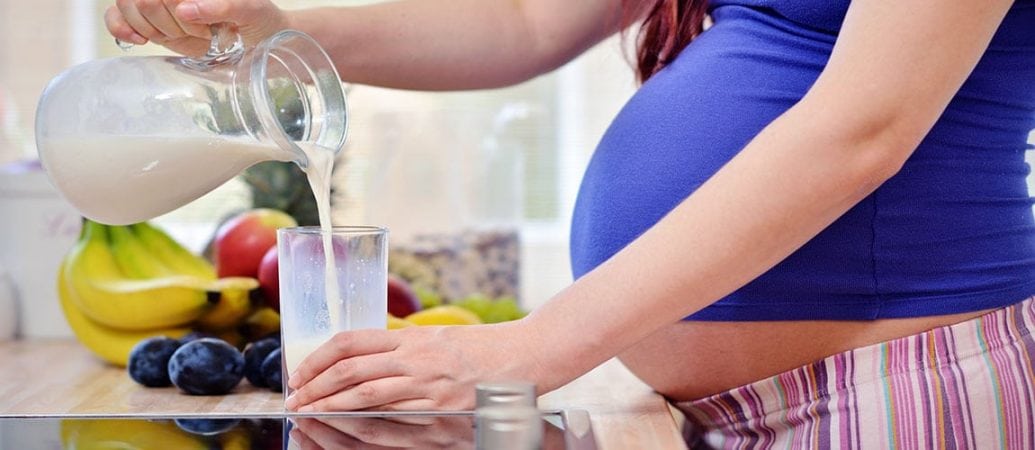Not Getting Enough Vitamin B12 During Pregnancy Boosts Disease Risk for Baby
Many people have are familiar with the importance of getting enough folic acid or folate, also known as vitamin B9, when pregnant. However, getting enough vitamin B12 during pregnancy is also important. New research underscores the importance of getting all of your B vitamins—especially vitamin B12—if you are pregnant or planning to conceive soon.
What Is Vitamin B12?
Vitamin B12 is an essential water-soluble vitamin that is used in a wide variety of cellular reactions. Essentially, it is a puzzle piece among many vitamins that are important for metabolism, energy production and other vital processes. People who do not get enough of this vitamin suffer from depressed mood, poorer memory and mental function and even a higher risk of infection. A long-term deficiency can cause permanent dementia and a variety of other serious illnesses. Pregnant women who do not get enough vitamin B12 during pregnancy are at a higher risk of giving birth to a baby with serious—and sometimes deadly—neural tube defects such as spina bifida and anencephaly.
Because vitamin B12 is water soluble, our cells do not store it in any significant amount. Going even a short time without foods or vitamins containing B12 can result in noticeable health effects. Most people who eat animal products usually get enough of this critical vitamin in their diets, as it is present in high levels in meat and eggs. However, there are times in life when your vitamin needs increase sharply, beyond what a typical Western diet can support. Pregnancy is one of these times. Pregnant women, especially those who do not eat a lot of animal products, are at e high risk of a B12 deficiency.
The Importance of Vitamin B12 During Pregnancy
 According to new research, a vitamin B12 deficiency during pregnancy may have more effects than previously realized. Even babies who are born appearing to be in good health may suffer the consequences over their lifetimes. In one study, vitamin B12 levels were measured in pregnant women and both their and their babies' health was analyzed. Babies born to mothers with a B12 deficiency had markedly lower levels of leptin, which is known as the "satiety hormone." Low levels of leptin cause a person to need to eat more to feel satisfied, predisposing them to obesity, type 2 diabetes and other diseases. They also stored more fat. While extra fat stores are generally healthy in an infant, they can be a health problem later in life. Even worse, babies whose mothers had low vitamin B12 during pregnancy were more likely to become diabetic later in life.
According to new research, a vitamin B12 deficiency during pregnancy may have more effects than previously realized. Even babies who are born appearing to be in good health may suffer the consequences over their lifetimes. In one study, vitamin B12 levels were measured in pregnant women and both their and their babies' health was analyzed. Babies born to mothers with a B12 deficiency had markedly lower levels of leptin, which is known as the "satiety hormone." Low levels of leptin cause a person to need to eat more to feel satisfied, predisposing them to obesity, type 2 diabetes and other diseases. They also stored more fat. While extra fat stores are generally healthy in an infant, they can be a health problem later in life. Even worse, babies whose mothers had low vitamin B12 during pregnancy were more likely to become diabetic later in life.
This was a small study so it will need to be repeated to confirm the results. However, researchers and doctors are already calling for an increase in the recommended intake of vitamin B12 during pregnancy to ensure that women get ample amounts of this critical vitamin. With a large proportion of the population struggling with obesity, diabetes and the many related health problems, it is important to ensure we have the basic building blocks we need for a healthy metabolism. This is especially true when we are eating for two, such as when pregnant or breastfeeding.
I Thought Eating Too Much Meat Was Bad for Me?
The irony of this and other studies underscoring the importance of vitamin B12 during pregnancy and throughout one's life is that many people believe they must cut back on meat and other B12-rich foods to improve their health. While eating a lot of animal products can negatively affect your health, these foods do contain nutrients that we need to be healthy and to bear healthy children. Ultimately, a well-balanced diet appears to be the key to leading a healthy life both in pregnancy and beyond. Pregnant women should eat a variety of foods and also take a high-quality prenatal multivitamin supplement to ensure their high nutritional needs are met. This is especially true for women who are vegetarian or unable to get enough animal products in their diet.
It is important for pregnant and breastfeeding women to talk to their doctors about any supplements that they are taking. However, during pregnancy, most doctors recommend taking a prenatal vitamin formula to ensure that you always have the building blocks that you and your baby need to enjoy optimal health. Eating a well-rounded diet and taking vitamins is an important way of giving your children the best chance at leading long, healthy lives.





